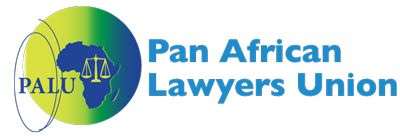By Omotayo Ayanda
With the support of UNESCO’s International Programme for the Development of Communication (IPDC), the Pan African Lawyers Union (PALU) and the Congress of African Journalists (CAJ), have joined efforts to lead the African media stakeholders in establishing the first continent-wide African Media Lawyers’ Network (AMLN), covering all the AU Member States.
The milestones achieved this far are also attributed to the continued technical support by the Centre for Law and Democracy.
Following a recommendation by African media stakeholders, during the 10th Anniversary of the UN Plan of Action on the Safety of Journalists (UNPA), the AMLN was established. This was deemed necessary to provide the much needed professional and legal support, including but not limited to national and subregional media lawyers’ networks. The African umbrella body of the national media lawyers’ network in Africa, will also provide professional support in reviewing of media laws and policies, and capacity building of lawyers, to understand and defend media freedom, safety of journalists and access to information.
“After five continent-wide-consultations in AU Member States aimed at identifying the gaps and room for improvement in the implementation of the UNPA in Africa, one of the gaps was on what more can be done to end the prevalent impunity. It is for this reason that UNESCO Liaison Office to AU enlisted the support of the Pan African Media Lawyers Union (PALU), in partnership with Congress of African Journalists, Centre for Law and Democracy and International Press Institute to take forward this recommendation” says Lydia Gachungi the UNESCO Regional Adviser for the Safety of Journalists in the Liaison Office to African Union.
The primary target of this network are journalists who often bear the brunt of attacks and intimidation by forces that undermine press freedom and the safety of journalists. Leveraging on the capacity of PALU and all the partnering media stakeholders, special focus will be given to the needs and requirements for the protection of female journalists who are mostly affected by online violence against women and in fast tracking prosecution of the perpetrators.
Commencing this process was the development of a draft framework by PALU, and further inputs by the media stakeholders attending the African Media Convention in May 2023 in Lusaka, Zambia. PALU’s annual conference in June 2023, further provided an opportunity to engage with the lawyers and civil society on the need for legal expertise and the importance of a broader collaboration with media stakeholders. This will empower and create a supporting base, which will improve the implementation rate of the judicial decisions on cases related to journalists in AU Member states.
Cognisant of the need to network and tap into other media stakeholders with related programmes, AMLN is also enlisting the support of other partners working in AU Member States, including the African Union, the International Press Institute, Media and CSOs networks across the continent.
Also speaking, the President of CAJ, Comrade Christopher Isiguzo said the Pan-African Media Lawyers Network (AMLN) would be a significant milestone for journalists in our continent.
“First and foremost, AMLN will provide essential legal support and protection for journalists who often face threats and intimidation while carrying out their vital work. By collaborating with the Pan African Lawyers Union (PALU), AMLN ensures that journalists will have access to legal expertise, which is crucial in defending media freedom, journalist safety, and access to information.
“This network will also play a pivotal role in reviewing and improving media laws and policies, further enhancing the environment for journalism in all AU Member States.”
Isiguzo said the AMLN recognizes the specific challenges faced by female journalists, particularly in dealing with online violence against women.
“With the support of AMLN, there will be a focused effort to protect and empower female journalists, while also expediting the prosecution of those responsible for attacks against them. AMLN is not only about legal support but also about creating a safer and more conducive space for journalism, where female journalists can thrive without fear.

“Additionally, AMLN will foster collaboration between lawyers, civil society, and media stakeholders. By building a strong support base and network, AMLN aims to improve the implementation of judicial decisions related to cases involving journalists in AU Member states. This collaborative effort will lead to a more effective and efficient response to threats against journalists, ensuring their safety and the preservation of media freedom in our continent.
“In summary, the Pan-African Media Lawyers Network is a vital initiative that will benefit journalists across the continent by providing legal support, safeguarding media freedom, protecting journalists, and enhancing the environment for journalism. It is a significant step towards ending impunity and ensuring that journalists can carry out their work without fear or hindrance.” Isiguzo said


